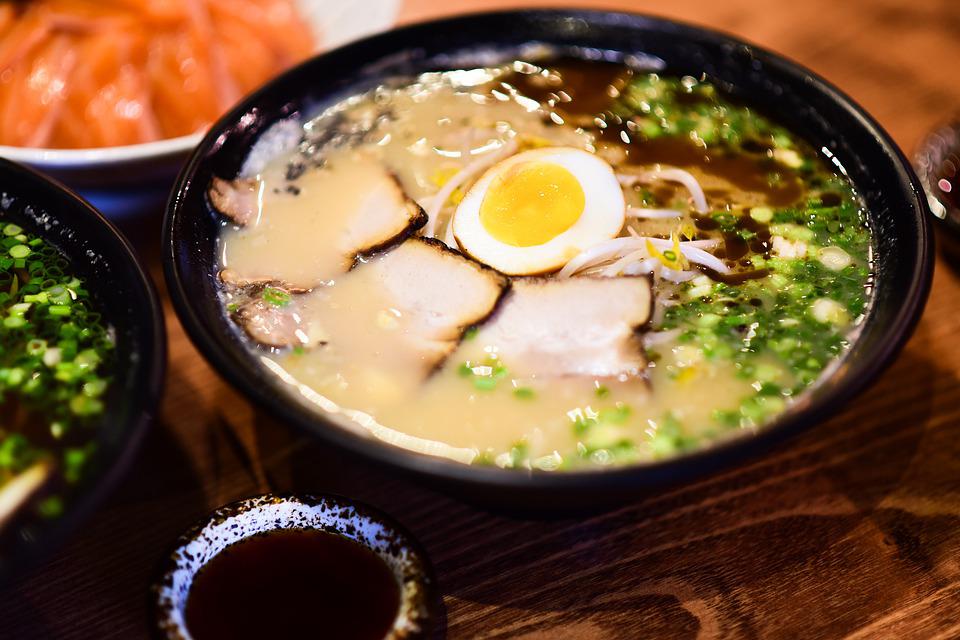
Here are some tips to help you recover from overeating: -Get some exercise: It may not be what you feel like doing, but a walk or some light activity can help get things moving along. -Have a light diet: Avoid processed foods, opt for fruits and vegetables, and drink plenty of water. -Keep motivated: Try to focus on the healthy lifestyle you’re working towards, rather than the slip-up.
- First of All, Forgive Yourself
Focusing on your binge will only make you more angry, which could lead to more overeating in the future. According to Lauren Minchen, a Registered Dietitian and Nutritionist, the first step to getting back on track is to forget the guilt. She also says that one overindulgent meal will not do much damage and that someone usually only falls back a day or two. So stay positive; you can do this.
- Hydrate
Yes, we understand. When you are very full, the last thing you want to do is drink a lot of water. However, it is good for you. “Staying hydrated can help your body recover from overeating by aiding digestion and fighting gas-induced bloating,” says Minchen. “In addition, staying hydrated supports a healthy metabolism and feeling of fullness, making recovery more manageable for the body.” Drink a large glass of water before bed and a few large glasses the next morning. It is also advisable to keep a water bottle with you for the next two days. This will help flush out any excess salt that is making you bloated.
- Go for a Walk
I generally tell my patients to be careful about using exercise as a way to combat overeating, says Minchen. “This can lead to feelings of guilt and shame about eating habits. Additionally, it’s not realistic or effective to try and work off every calorie with exercise. Even so, doing some light cardio the day after overeating can help deliver oxygen to the digestive tract, which aids in food digestion and can make people feel better.” Minchen recommends 30 minutes of light cardio, such as walking, jogging, or an at-home cardio DVD. If you’re short on time, she suggests turning your trip to the mall into a mini-workout by parking as far away from the mall as possible and power-walking to and from the entrance.
If you take a walk after eating too much, it can help improve your thinking and make you feel physically better.
Walking can help get rid of the uncomfortable feeling of being full or bloated after overeating.
It can also help you burn some of the extra calories that you might have consumed during a binge.
According to one small study, obese women who walked 50–70 minutes three times a week for 12 weeks lost 1.5% of their body fat. This included a significant amount of belly fat.
Walking can also improve your mood and reduce some of the negative feelings that may cause you to overeat.
Physical activity can help improve mental health by causing the release of important neurotransmitters like serotonin and norepinephrine.
Not only does exercise help you physically, but it also helps you mentally. Exercise has been proven to improve mood and reduce stress, which will in turn help prevent future episodes of binging.
- Sleep It Off
If you overeat one day, it’s helpful to get a good night’s sleep so you’ll be less likely to have cravings the next day.
Not getting enough sleep may make you more hungry, according to studies. This is because it can affect levels of ghrelin and leptin, two hormones that regulate hunger and appetite.
Ghrelin is a hormone that makes you feel hungry, while leptin is a hormone that tells your brain you’re full.
The study found that those who slept for eight hours or more per night were less likely to be obese. Sleeping fewer than eight hours per night was associated with higher body weight and higher levels of ghrelin. Ghrelin is a hormone that increases appetite. Leptin is a hormone that suppresses appetite.
A different small study discovered that males who slept for only four hours the previous night ate 22% more the following day than those who got eight hours of sleep.
Most health experts recommend that people get at least seven to nine hours of sleep per night.
If you eat more than you planned to in one sitting, try going to bed earlier than normal to make sure you get a full night’s sleep. This will help you feel better the next day.
- Eat a Healthy Breakfast
Although you may feel like you want to skip breakfast or lunch the day after overeating, eating a healthy meal can help you get back on track.
Beginning your day with a morning routine can help you start fresh after a good night’s sleep. Additionally, it can help you get back into your routine and make healthier choices throughout the day.
Research suggests that maintaining a regular eating pattern could be linked to reducing the frequency of binge eating.
Your first meal of the day can also have an affect on your health.
One study found that eating a high-protein breakfast decreases levels of ghrelin, the hunger hormone, more effectively than eating a high-carb breakfast.
A study with 48 people showed that oatmeal, a food high in both protein and fiber, made people feel fuller and improved their appetite control more than a ready-to-eat breakfast cereal.
You should try and have a healthy start to your day by having a meal which is high in both protein and fiber. You can combine this meal easily with fiber-rich fruits, vegetables, legumes or whole grains to get a good source of protein. This will give you a nutritious meal.
- Try Yoga
Yoga can help improve a number of health conditions, including migraines and sleep quality.
Yoga may help promote healthy eating habits, which can reduce the risk of overeating.
A small study found that yoga may help reduce binge eating and body mass index.
Yoga not only has a positive effect on your mood, but can also help prevent emotional eating and keep you feeling motivated after an unplanned binge.
It has been shown to lower levels of cortisol, which may help reduce anxiety and depression by affecting serotonin levels.
The findings of a study of 131 people suggest that yoga may be effective in improving mental health and reducing stress and anxiety.
Benefits of practicing yoga may be seen more in the long term if it is done regularly, as opposed to just after overeating.
A good way to start practicing yoga is to take a class at a local gym or yoga studio. There are also many online videos and other resources that can be used to practice yoga at home.
- Fill up on Veggies
Vegetables contain a lot of the nutrients your body needs, such as vitamins, minerals, and antioxidants.
Veggies are a good way to help prevent overeating.
Vegetables contain a lot of fiber, which means it passes through your digestive system without being broken down, which can help you feel full.
If you want to regulate your weight, try bumping up your fiber intake. Fiber makes you feel fuller, so you’re likely to eat less.
If people increase their dietary fiber intake by 14 grams per day, they will, on average, consume 10% fewer calories and lose a significant amount of weight.
A different study found that people who ate more vegetables lost more weight and felt less hungry in comparison to a control group.
You should try to have at least half of your plate filled with veggies at each meal.
Some ways you can change up your snacks to be healthier include adding carrots to hummus, having roasted chickpeas, or baked kale chips. These are all yummy options that will help reduce the chance of overeating.
- Avoid Skipping Meals
When you’ve overeaten, the last thing you want to do is plan your next meal.
Not eating can actually make you less likely to reach your goals and make you more likely to crave food, which could lead to another binge.
One study found that 14 healthy women who ate three meals per day felt fuller throughout the day and burned more fat than those who ate two meals.
The study found that those who ate one meal a day felt just as full as those who ate three meals a day. A study compared the effects of eating one meal a day or three meals a day. The study found that those who ate one meal a day felt just as full as those who ate three meals a day.
Eating just one meal per day had some pretty undesirable consequences, like making ghrelin levels go up (that’s the hunger hormone) and also messing with blood sugar and insulin response.
There is evidence to suggest that sticking to a regular eating schedule can be linked to less binge eating.
If you have binged, the best thing to do is to go back to your normal routine, whatever that may be.
- Avoid Hard-to-Digest Foods
If you have indigestion from overeating, avoid eating foods that will make it worse. These include gluten, dairy, coffee, sugar, carbonated drinks, and acidic foods like fruit juice, pasta, alcohol, fatty meats, and chocolate. Instead, eat alkaline foods like fruits, vegetables, green tea, almonds, lentils, and avocados, which won’t make indigestion worse. “First eliminate the foods that are known to cause problems, and then see if there are any others that you need to avoid for a day or two,” says Minchen.
- Keep Lunch and Dinner ‘Clean’
You don’t need to do a full cleanse after overeating, but eating healthy foods the next day will make you feel better and help you stay on track. Here are some examples that fit the bill:
- A grilled salmon fillet with one cup quinoa and three cups leafy greens dressed in olive oil and lemon dressing.
- A baked chicken breast with half a sweet potato topped with one tablespoon of butter and two cups steamed broccoli.
- Four cups of leafy greens and other veggies topped with grilled steak, 1/4th of an avocado, 1/4th cup dried cranberries, and balsamic vinegar
- Allow Flexibility In Your Diet
“Eliminate the urge to binge by allowing more flexibility and freedom into food choices and meal plans throughout the week,” says Sara De Luca, RD, CPT. “Labeling food as ‘good’ or ‘bad’ will only lead to restrictive behaviors that will ultimately trigger a binge when the ‘bad’ foods are reintroduced into the diet! As long as portion sizes and calories are controlled, there should be no foods that are off limits.”
- Shun the Scale
The scale is often not accurate the day after eating a lot of food. This is because the food is still in your stomach and you may be retaining water from eating salty snacks. It can be discouraging and make you feel like you haven’t made any progress, but it’s usually not the case. Minchen suggests waiting a couple days before weighing yourself to see the real results.
- Talk to Someone
Nusbaum says that the best way to deal with binge eating is to face the problem head-on. He advises people to figure out what triggered the binge eating, whether it was stress, a fight, or feeling overwhelmed. If a person can’t talk to a friend or parent about the issue, Nusbaum suggests finding a therapist to talk it out.
- Consult a Dietician
If you’re struggling with binge eating, the best thing to do is to consult a dietitian. “There are registered dietitians who specialize in eating disorders who can help the person to develop a healthier relationship with food,” says Summer Yule, MS, RDN.
- Practice Mindful Eating
To practice mindful eating, you should focus on the textures, tastes, and smells of the food you’re eating, and really savor each bite. You should also pay attention to the way your body feels while you’re eating, and stop when you’re full.
The key to mindful eating is being aware of your emotions and sensations while you’re consuming food. Paying attention to the taste, smell, and texture of what you’re eating can help you enjoy your meal more.
Eating mindfully may help to treat binge eating disorder, a condition where a person regularly overeats in a short period of time.
A review of 14 studies showed that mindfulness can effectively reduce binge and emotional eating.
A different small study discovered that when females with binge eating disorders were provided a mix of mindfulness and cognitive-behavioral therapy, they demonstrated improved eating habits and increased self-awareness.
The review found that mindful eating may help people reduce their food intake later in the day, which could help them lose weight.
In order to practice mindful eating, you should try to eliminate distractions and savor your food slowly. Pay attention to your feelings of fullness so that you know when it is time to stop eating.














